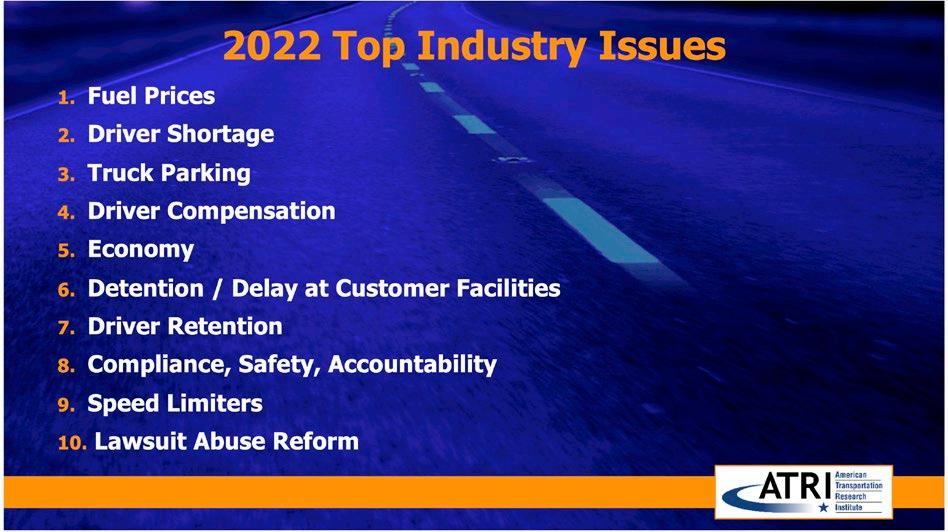
5 minute read
Key Supply Chain Trends Highlighted in This Edition
Like it or not, disruptions to food chain operations are here to stay - whether they be inflationary pressures in a recessionary environment, climate change weather events, finding and retaining top talent, or issues yet to emerge. They can all impact access to food materials, packaging, and final food products – and how they flow to their end destination.
Amid these disruptions, there will be key supply chain trends to manage and how your organization responds to these will be a critical opportunity. There likely will be turmoil in accessing key materials, manufacturing footprints will change shape, retail and distribution food chains will rapidly morph, technology investments will accelerate, and on the ESG front scope 3 emissions will be scrutinized – notably by investors and regulators in addition to the environmentally conscious consumer.
To set yourself up for success in dealing with these food chain trends, you need to have three overarching things in place for business success:
Capability: Have in place a mature supply chain planning capability to consistently be a step ahead and ready to tackle business risks and opportunities.
Agility: Ensure your food chain is responsive and agile to manage the unexpected, and ultimately be able to deal with threats and disruptions effectively and profitably.
End-to-end forward-looking visibility: Make sure you have “control tower” visibility on key real-time indicators, the ability to maneuver your supply chain beyond your own business borders, and build real-time collaboration within your ecosystem of supply chain partners.
With these trends as a backdrop, our editorial team at Food Chain Digest has compiled a series of powerful articles in this edition that will help you to turn your food chain into a competitive advantage:
• With regulators and other key stakeholders such as customers and the finance community demanding a focus on scope 3 emissions control, our cover story (“Sustainability As A Competitive Advantage”) will help you to make informed decisions to reduce these emissions beyond just “greenwashing.” Equally important, you’ll learn how to make end-to-end supply chain transformations and leverage emerging technologies to provide the transparency you need. Learn how leading food companies such as Cargill, JBS Foods Group, and Dole are making significant strides in their supply chain sustainability strategies.
• You’ll read how food shippers are successfully establishing a path to find and retain a diverse workforce in a competitive environment in our special feature, “Workforce of the Future: Diversity, Equity, Inclusion.” You’ll gain solid practical advice as Dawn Foods shares how it is successfully deploying a DEI strategy that delivers business results.
• Food manufacturers struggle to access critical food materials and ingredients amidst rapidly rising energy costs and price surges of key inputs – and many global food corporations are re-evaluating their manufacturing footprint. Food retailers and distributors also are going through major supply chain transformations. As the footprint of these food chains change, so do the players with the right capabilities. Our feature article (“Elevating Your Provider Collaboration Success”) provides you with practical tips on how to maximize the power of your provider relationships, and two feature articles cover how Unilever and Musco Family Olive Company are successfully leveraging outsourced expertise for business success.
• If your food chain involves warehousing and distribution strategies, you’ll want to read “What’s Cooking: Food Warehousing Trends” to better understand how companies are using tools and processes to enhance visibility, automation, and efficiency.
• If your food chain heavily involves over-the-road trucking, you’ll want to learn more about the priorities of the Federal Motor Carrier Safety Administration. I recently had the pleasure of connecting with FMCSA Administrator Robin Hutcheson on key priorities of her agency – and you’ll gain context around how they can impact the operations of food shippers.
• Lastly, three recent economic developments have created profound changes for food chains across the country – persistently high inflation, scarce and expensive talent, and global supply chain issues. Better understand these developments when you read “The State of the Food Chain Amid the Triple Squeeze.”
Read this power-packed edition of Food Chain Digest to learn how to navigate these turbulent times. And for those who are attending the 67th Annual Food Shippers Conference in Palm Desert, Calif., I look forward to seeing you there!
Nationwide coverage – and beyond!
Whether the US, Canada, or our Southern border, Kam-Way is uniquely positioned to bring you the best in FTL Freight Brokerage, Freight Forwarding, Dedicated Services and Asset based Solutions.

We support you!
Your assigned team is available 24/7/365 supporting your commitments and providing timely updates no matter the time of day.

Growing our business together!
Kam-Way strives to develop a long-lasting partnership with you through honest, forward-thinking collaboration!
Food Shippers 2023 Annual Conference: Content Reflects Key Challenges, Opportunities
The 67th Annual Conference by Food Shippers of America takes place March 5-7 in Palm Desert, Calif., and the content reflects current opportunities and challenges facing today’s food shippers. Mark Purdy, Senior Manager Dry Transportation with General Mills and Craig Paulsen, Vice President with Schneider are 2023 Conference Co-Chairs. Purdy and Paulsen highlight some of these key topics to be covered:
Autonomous Trucking
According to Fortune Business Insights, the autonomous truck market size is projected to reach U.S. $2,013 million by 2027, at a CAGR of 12.6%. Waabi is an autonomous developer that is focused on trucking, using its proprietary software to automate driving on commercial delivery routes. Waabi’s Dustin Kohl, Head of Transportation, and Sam
Loesche, Head of Policy & Public Affairs, will give an update on the evolving commercial autonomous trucking landscape, regulatory environment, technologies and commercialization.

Inclusion in the Supply Chain
The introduction of new ideas, the exposure to differing perspectives and the collaboration among diverse identities is a bridge to new opportunities. A culture of inclusion expands beyond just one way of thinking and attracts a workforce ready to disrupt and adapt. Shelley Simpson, President of J.B. Hunt Transport Services, will give her perspectives on the future of inclusion in supply chain and how companies can invest in programs that drive innovation, acceleration, and growth.
Innovation and Technology of the Future
Tracy Rosser, Supply Chain Consultant, will discuss what is around the corner with data visibility, new transparent platforms, connectivity
2023 Conference Keynote Speakers
and integration technology that will drive supply chain networks into the future.
Traditional Versus Digital Brokerage
There is a growing difference between the virtues of the traditional versus digital brokerage business models. Cassandra Gaines, CEO with Carrier Assure, Dan Lewis, CEO with Convoy, and Andrew Silver, CEO with MoLo Solutions, will help food shippers will help food shippers to understand the similarities and differences and to best determine how to balance the effective use of both alternatives to meet their supply chain needs.
Seed to Sea and Everything In-Between
The future food supply chain will continue to adapt to keep America from going hungry as these industry participants cover key issues facing every food shipper from the ground to the shelf: Alyssa Correale, Senior Vice President of Strategic Fleet Partnerships, Uber Freight (facilitator);
Andrew
, talks about his success in the NFL, being the oldest tackle in NFL history, and oldest offensive lineman to win a Super Bowl and how the principles that guided him can be used everyday. and


Russell Leo, CEO of RLS Logistics; Joe Dagnese, CEO of Peco Pallet; Adam DeGroot, CEO of DeGroot Farms; and Mario Cordero, Executive Director, Port of Long Beach.
Making Sense of an Uncertain
Future On a daily basis food shippers are faced with an onslaught of new potential technologies, emerging disruptive social trends, and constantly shifting economic and political landscapes. These trends are exacerbated by the increasing complexity and connectiveness of products. Managers and supply chain executives need to be able to see through this uncertainty to ensure success for their organizations. Today we have the tools to help us see through the fog and better prepare. Chris Caplice, Senior Research Scientist with MIT and DAT, will discuss available tools and techniques that can be used to better prepare organizations for a future that is ever changing and unpredictable.
The Food that Feeds America

Follow the unlikely journey of Stephanie Stuckey who stepped away from her career as a lawyer, the House of Representatives and Director of Sustainability and Chief Resilience Officer in Atlanta to buy her family’s old company back










